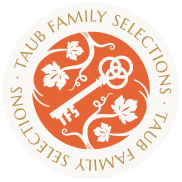

Gran Clos At the Heart of Priorat’s Quality Revolution

Gran Clos epitomizes the winemaking revolution that has seized hold of Spain’s Priorat region in the past 15 years and propelled it into the spotlight. The estate produces elegant, balanced wines that offer a pure expression of their remarkable terroir, distinguished by the region’s signature llicorella soils.
Forty miles southwest of the fashionably bustling city of Barcelona, the Priorat region has been hailed as a modern-day superstar of Spanish winemaking. This arid, remote, and rugged province derives its name from ancient priories in which ascetic Spanish monks over the centuries secluded themselves from the world outside. These same monks planted some of the region’s first vines, back in the 12th century.
While it was founded in 1995, Gran Clos took on new life in 2002, when it was purchased by John Hunt, an international entrepreneur and owner of Oriel Wines. Under his leadership, Gran Clos was rated the #1 winery in Priorat by top wine critics, sommeliers, and international judges in a 10-year blind tasting among its peers. The Gran Clos estate was also ranked as a Top 100 Winery of the Year in 2020 by Wine & Spirits. Its wines grace the wine lists of many of Spain’s most prestigious restaurants and have won medals from the Decanter World Wine Awards, International Wine Challenge, Berliner Weir Trophy, Mundus Vini, and other top industry competitions.
Despite the major critical acclaim, Gran Clos continues to craft authentic, high-quality wine from Priorat without the triple-digit prices that many Priorat wineries of similar caliber demand. Their wines remain accessible to the average wine enthusiast and are fit to be enjoyed during everyday moments and special occasions alike. Revolutionary, indeed.
Terroir
Priorat lies in Spain’s Catalonia region, in the province of Tarragona. It has a continental climate, with long, hot, and dry summers. These conditions stress vines, leading to lower yields of intensely concentrated fruit.
The most significant aspect of the region’s terroir is the llicorella soil, which is a main contributor to the distinctive character of wine from Priorat. A dense mixture of slate and quartz, llicorella soil resembles a broken road more than arable land. It forces vines to bury their roots deep — as far as nine meters / 30 feet — in search of nutrients and water. This struggle results in a slow growth of the grapes, a deeper concentration of flavor, and a unique mineral complexity in the wines.

Viticulture
The Gran Clos estate cultivates 32 hectares / 79 acres of vineyards, with vines ranging in age from 25 to over 100 years old. They primarily grow garnacha and cariñena, with small plantings of cabernet sauvignon, merlot, tempranillo, and syrah, and an even tinier portion of garnacha blanca and macabeu vines.
Located at 298-396 meters / 980-1,300 feet above sea level, the vineyards are planted on steep terraces in a combination of llicorella, clay, and limestone soils. Careful control of the leaf canopy helps keep yields low, and sustainable dry farming strengthens the vines and produces concentrated grapes. The vineyard team does a two-pass harvest by hand, ensuring that only the best fruit makes it to the winery.

Balanced, Complex Wines From Priorat
Gran Clos’ head winemaker, Josep Angel Mestre, studied Agricultural and Technical Engineering and Enology at the prestigious University Roveria and Virgili in Catalunya. His family has made wine in Priorat for 50+ years, so he has a deep understanding of and passion for the region’s winemaking traditions. Under his direction, Gran Clos wines offer a pure expression of their remarkable terroir, with added complexity and secondary flavors from maturation in French and/or American oak barrels.









